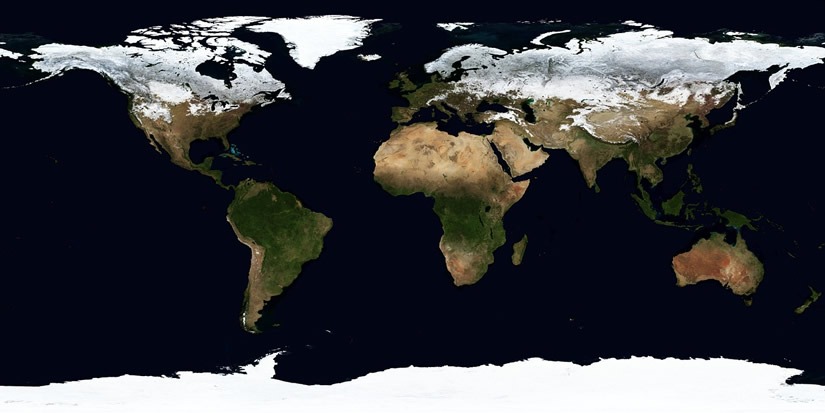By Adam Saifer, Université du Québec à Montréal (UQAM)
Against the backdrop of the WE Charity scandal — and revelations of political nepotism and charitable shell corporations — Canadian philanthropic foundations have quietly distributed more than $100 million in emergency funds to support communities most impacted by COVID-19.
In the process, however, philanthropy has revealed its limits as a mechanism for addressing the societal inequalities magnified by the pandemic.
The health and economic impacts of COVID-19 have been disproportionately felt by racialized, Indigenous and working-class communities. This reality reflects pronounced inequalities in Canadian society that have been exacerbated by decades of tax cuts for corporations and the wealthy, alongside austerity policies and the hollowing-out of the welfare state.
Less attention, however, has been paid to the concurrent history of charitable tax incentives that enable the super-wealthy to redirect billions in tax dollars away from government programs toward their private philanthropic foundations and the causes they choose to support.
These policies represent a far greater threat to ordinary Canadians and the legitimacy of the charitable sector than the drama of the WE Charity scandal.
What are private foundations?
Private foundations are privately run, privately funded and tax-exempt organizations that facilitate the charitable donations of the wealthy. When individuals give to their private foundations, they receive a charitable receipt they can use as a credit against the income taxes they owe the government.
Since 1995, the federal government has further incentivized this process by raising the maximum charitable tax credit someone can claim from 20 per cent to 75 per cent of their annual income, and by extending the charitable credit to apply to donations of stocks, bonds and mutual funds.
These policies have led to massive growth in the sector. Between 1995 and 2019, for example, the number of Canadian private foundations increased to approximately 5,915 from 3,000. And from 2008 to 2017, the total assets of private foundations grew to $49.6 billion from $16.82 billion.
A considerable amount of these assets is concentrated in some of Canada’s most celebrated foundations, including the Lucie and André Chagnon Foundation ($1.96 billion in assets), the McConnell Foundation ($629 million in assets) and the Rossy Family Foundation ($538 million in assets).
This expansion, however, occurs at the expense of government tax revenue. Philanthropic donations are dollars that have been redirected away from universal social services toward the causes of a philanthropist’s choosing.
Foundations are also only required to distribute 3.5 per cent of their total assets to registered charities in a given year, despite the fact that the financial assets of private foundations currently grow at approximately 10 per cent annually.
These policies have contributed to an underfunded social safety net, and a philanthropic sector scrambling to fill in gaps that they are not well-equipped to handle. Philanthropy cannot operate anywhere near the scale that the public sector does. It cannot, for example, fund universal pharmacare or implement a nationwide affordable housing program.
And the vast majority of private foundation dollars find themselves in the pockets of universities, research centres and large cultural institutions.
Wealth taxes and private foundations
Philanthropists who want to aid in the recovery process and make sure the most disadvantaged in society are not disproportionately affected by future crises need to think about philanthropy — the allocation of private resources toward a public good — differently.
One way is to follow the lead of groups like Resource Movement that are using their wealth, power and influence to support a growing list of voices across Canada advocating for a tax on extreme levels of wealth.
The super-wealth tax proposed by the federal NDP would tax net wealth above $20 million at a rate of one per cent. Based on numbers from a recent report by the Office of the Parliamentary Budget Officer, this would apply to roughly 0.2 per cent of Canadian families who own approximately 15 per cent of all wealth in Canada.
Most Canadians are in favour of such a tax. A 2019 Ekos poll found majority support for a wealth tax across party lines and age groups, while a May 2020 Abacus poll found three in four Canadians endorse a wealth tax.
For a wealth tax to work, however, it must apply to the billions of dollars sitting in privately controlled foundations as well. This would signal an important step toward a fairer and more equitable society.
While philanthropists would still receive tax receipts for donations to their foundations, they would be incentivized to either distribute these funds quickly to charitable organizations, or pay a small tax on their wealth each year to contribute to a more robust social safety net.
In either case, a wealth tax would ensure that private foundations are working for the taxpayers who subsidize their charitable giving.
Philanthropy is best suited to act fast in times of crisis. But what COVID-19 has made clear is that the challenges we currently face — the gaps in income support, health and education, long-term care programs and housing — are not novel crises.
They are the product of decades of growing inequalities and a shrinking social safety net, in part hastened by a focus on private over public welfare funding.![]()
About the Author:
Adam Saifer, Postdoctoral fellow, Canadian Philanthropy Partnership Research Network, Université du Québec à Montréal (UQAM)
This article is republished from The Conversation under a Creative Commons license. Read the original article.
